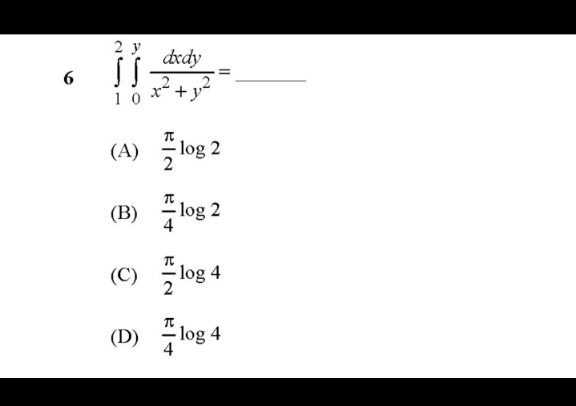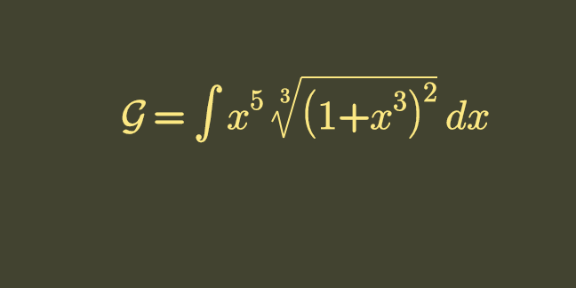
Question and Answers Forum
IntegrationQuestion and Answers: Page 106




Pg 101 Pg 102 Pg 103 Pg 104 Pg 105 Pg 106 Pg 107 Pg 108 Pg 109 Pg 110
|
Question and Answers Forum |
IntegrationQuestion and Answers: Page 106 |
| prove ∫_(−∞) ^(+∞) (1/(1+e^x^2 ))dx=(√π) (1−(√2) )ξ((1/2)) |
| nice old question by sir m?th+et?s ∫_0 ^∞ cos((x^3 /3)+tx)dx |
| ∫ (x^2 −1)(x+1)^(−2/3) dx ? |
| complex analysis ∮_C ((ϱ^(2z) +sinz^2 )/((z−2)(z−3)))dz C:∣Z∣=5 |
| ... advanced calculus... prove that: ∫_0 ^( π) cos(tan(x)−cot(x))dx=(π/e^2 ) |
| ... nice calculus... evaluate :: Σ_(n=1) ^∞ (((−1)^n )/(n^2 +1)) (((sin(n))/n))^2 =? |
| ϝ = ∫ (dx/(1+x^(12) )) . |
| ϝ = ∫ (dx/(x^(2n+1) (x^n −1))) |
| ∫(dx/((x^2 +1)^2 ))=? Σ_(k=1) ^n (1/(k(k+1)(2k+1)))=? |
| please, how to show that f : [0 , a] × R_+ → R (x, y) e^(−xy) sin x is integrable ??? |
| V = ∫ ((sin x)/(sin (x+θ))) dx |
| calculate ∫_0 ^∞ (dx/((x^6 +1)^2 )) |
| ...modern ∗∗∗∗∗∗∗∗∗∗ algebra ... ::: if ′′ G ′′ be a finite group and O (G)=pq , where ′′ p , q ′′ are two prime numbers (p > q ) then prove that: G has at most one subgroup of order ′′ p ′′ . written and compiled by ...♣m.n.july.1970♣.... |

|
| ∫ cos (y^3 )dy |

|
| ...advsnced calculus.... calculate: Ω=∫_0 ^( ∞) e^(−(√x) ) ln(1+(1/( (√x) )))dx |
| ∫(( (√x))/( (√(x-1))))dx = ... |

|
| ... laplace transformation.. L (te^(−t) ⌊t⌋)=? note : ⌊x⌋ is floor of ′′ x ′′... .............. |
| O = ∫_( 0) ^( 1) ((arctan (((3X+3)/(1−2X−X^2 ))))/(1+X^2 )) dX |
| ∫e^x^x dx?????? |
| ∫ ((cos^2 x+cos x)/(1+sin x+cos x)) dx ? |
| please answer my question |
| ∫_1 ^a ((4(√x) +k)/( (√x) +1)) = 4a+3 . Find the value of ∫_1 ^( a) (1/( (√x) +1)) dx . |

|
Pg 101 Pg 102 Pg 103 Pg 104 Pg 105 Pg 106 Pg 107 Pg 108 Pg 109 Pg 110 |